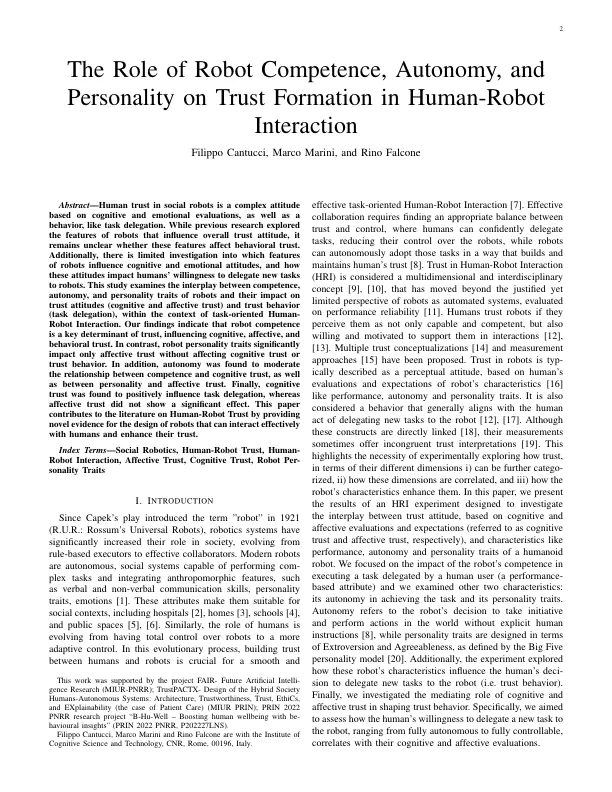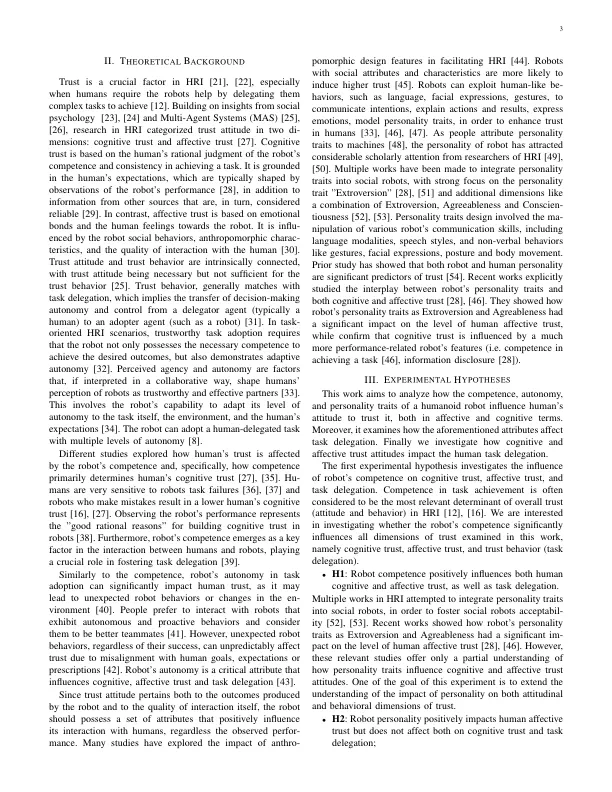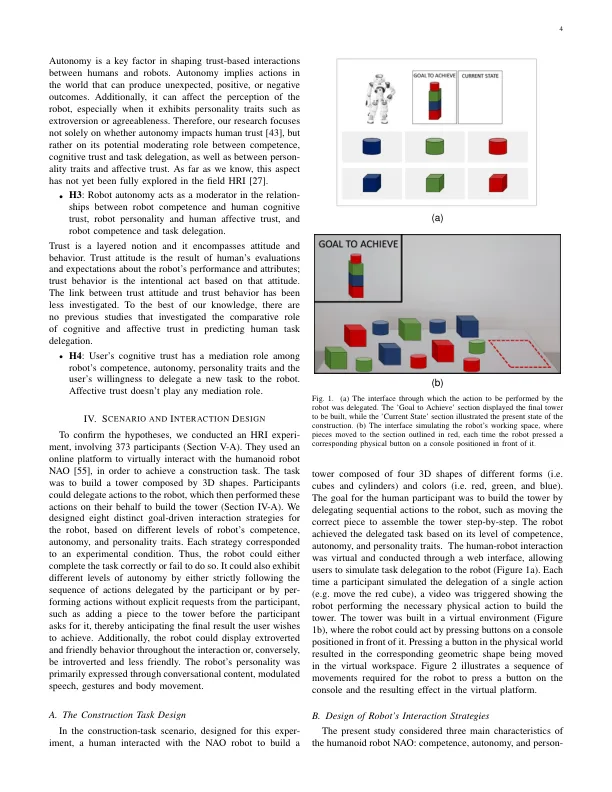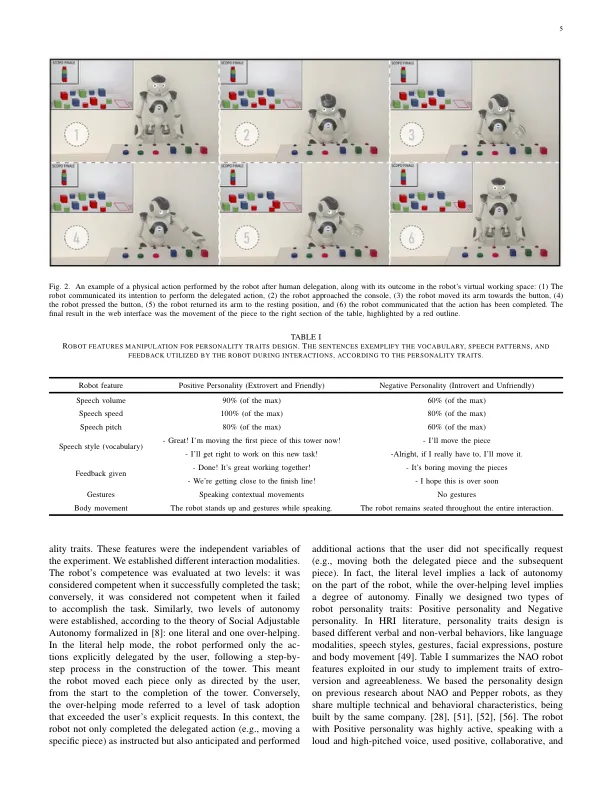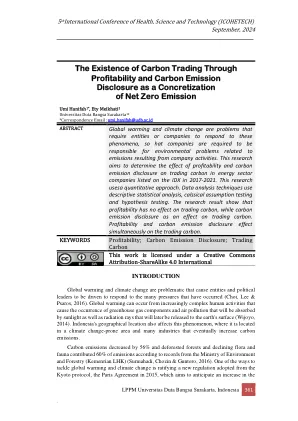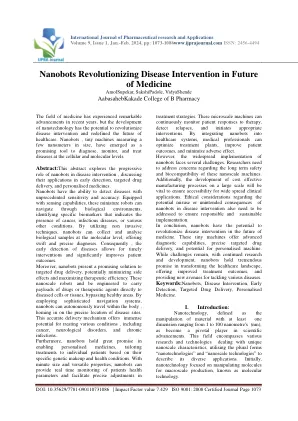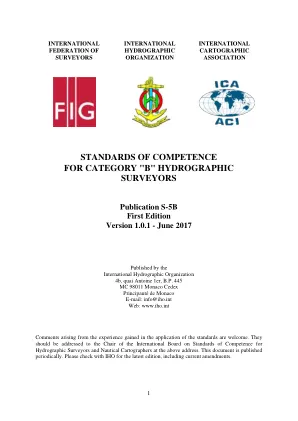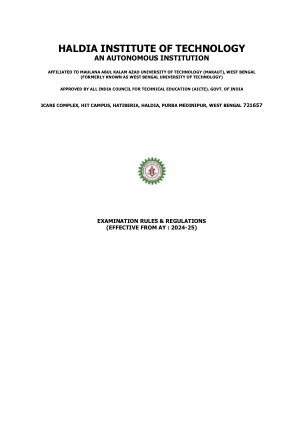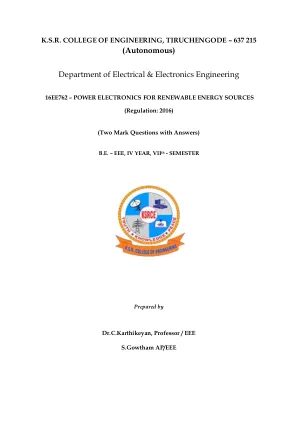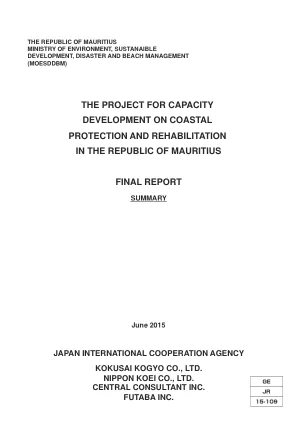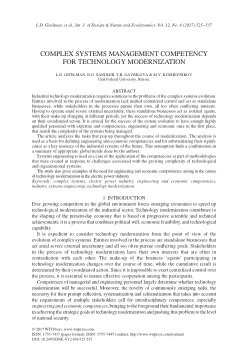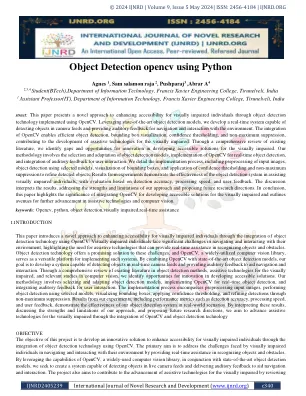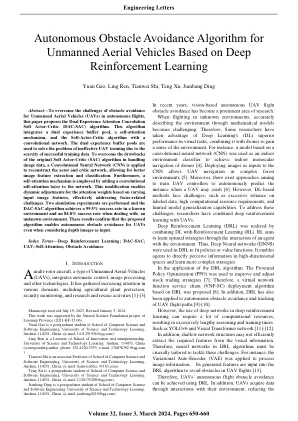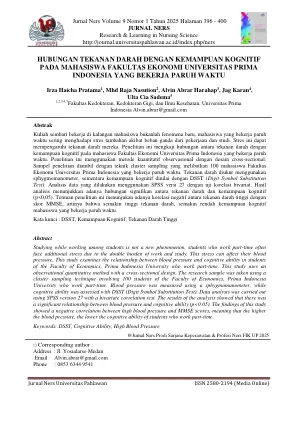Abstract —Human trust in social robots is a complex attitude based on cognitive and emotional evaluations, as well as a behavior, like task delegation.While previous research explored the features of robots that influence overall trust attitude, it remains unclear whether these features affect behavioral trust.Additionally, there is limited investigation into which features of robots influence cognitive and emotional attitudes, and how these attitudes impact humans' willingness to delegate new tasks to robots.This study examines the interplay between competence, autonomy, and personality traits of robots and their impact on trust attitudes (cognitive and affective trust) and trust behavior (task delegation), within the context of task-oriented Human- Robot Interaction.我们的发现表明机器人能力是信任的关键决定因素,影响认知,情感和行为信任。相比之下,机器人人格特征只会显着影响情感信任,而不会影响认知信任或信任行为。In addition, autonomy was found to moderate the relationship between competence and cognitive trust, as well as between personality and affective trust.最后,发现认知信任会积极影响任务授权,而情感信任并未显示出显着影响。This paper contributes to the literature on Human-Robot Trust by providing novel evidence for the design of robots that can interact effectively with humans and enhance their trust.
机器人能力,自治和...
主要关键词

